Job roles in Journalism
- Reporter
- Chief Editor
- Editorial Assistant
- Proofreader
- Investigative journalism
- Media planner
- Press Secretary
- Editing
- Managing Editor
- Website content writer
- Publishing
- Broadcast Journalism
- Newscaster/news presenter
- News producer
Reporter: A journalist is a person who gathers information on a particular topic in either a text, audio or picture form processes it into a news-worthy form, and circulates it into the public
Chief Editor: An Editor-in-Chief or Chief Editor, is a publication’s editorial leader who has final responsibility for its operations and policies.
Investigative Journalism: Investigative Journalism is a form of Journalism in which reporters investigate deeply into a specific topic of interest, like serious crimes, racial injustice, political corruption, or even corporate wrongdoing. An investigative journalist could spend up to months or even years researching and preparing a report.
Broadcast Journalism: Broadcast Journalism is the field of news broadcasted by electronic methods such as TV Stations, Radio stations and Online News instead of the old methods.
In the video, the following roles could be included:
- Editorial & Production
- Post Production
- Art Department
- Lighting
- Sound
- Camera
- PR & Marketing
- Animation
Jobs:
- Editor
The editor is the chief of the news agency and is responsible for what is published to the world. An Editor oversees any work of the news agency staff. They issue space for articles, photos & ads, ultimately deciding which story makes production. Source
- Sound Engineer
A Sound Technician AKA Sound Engineers job is to arrange the setup process and operate the technical equipment used to record, edit and amplify the sound produced for film, radio, TV and or theatre. Source
- Camera Operator
A Camera Operator uses a variety of technical equipment including single and or multiple portable cameras, remote-control, electronic cameras and cranes to capture live action for TV, films, commercials and other visual broadcasts that may be displayed on TV or billboards. Source
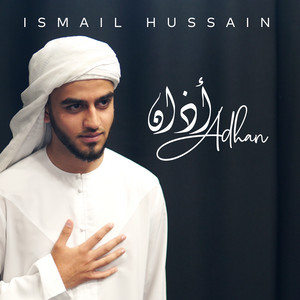
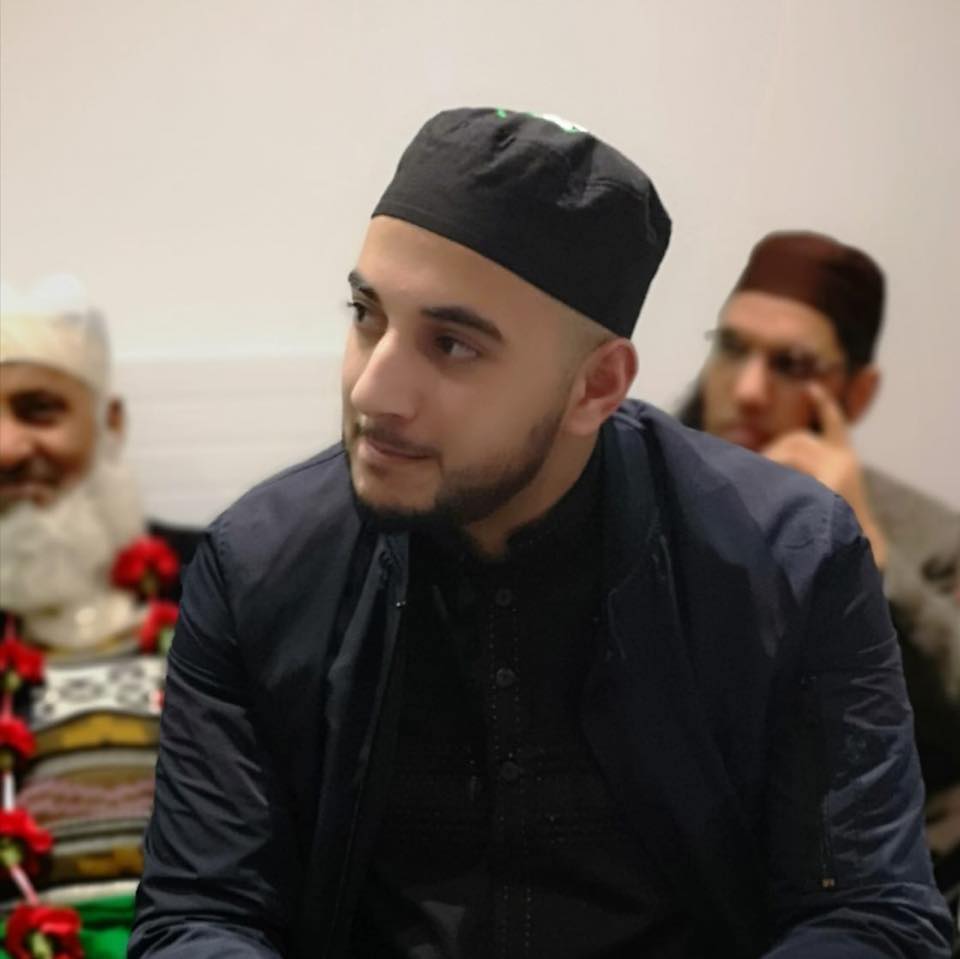

I have chosen the above people because I believe they are a crucial part of the Naatkhawan world. I have chosen to interview the Director of RadioMAC instead of Usman Attari.
Radiostation: RadioMAC 107.1FM | 0330 998 1164 | www.radiomac.org
- Impact of Nasheeds on the Youth in Bradford? (specific age group…)
- Impact of Nasheeds within Islam? Has it attracted anyone towards reverting?
- What type of Nasheeds/Naats do people prefer and listen more to? (E.G. Urdu/Arabic/English | Genre: Qawwali…) (What do 13-18 yr olds prefer… What do 18-28 prefer… what do 28 and over prefer)
- Why do people prefer Songs over Naats/Nasheeds? What are their thoughts?
- What would it take for the youth/Elder community to stop listening to songs completely and just listen to Naats/Nasheeds?
- Speak to Professional Recording labels and ask if they produce more songs or naats. And if they produce more naats what type of Naats do they produce? (E.G. English/Urdu/Arabic)
- What is the most popular Naat/Nasheed Genre currently?
- how does the music reflect on your religious belief.
Questions for RadioMAC:
- Do you play local talent?
- How do you find the naats that you play on the radio?
- what determines if a naat gets played?
- What kind of feeling does the naat invoke on you and the listeners?
- Lastly what is one thing you would say to the youth of today?
PLAN
Interview: RadioMAC Director (Humair Shahid) & Also Ismail Hussain (Nasheed Artist & Usman Raza Qadri & Usman Attari
Questions:
- Can you briefly introduce yourself and your background?
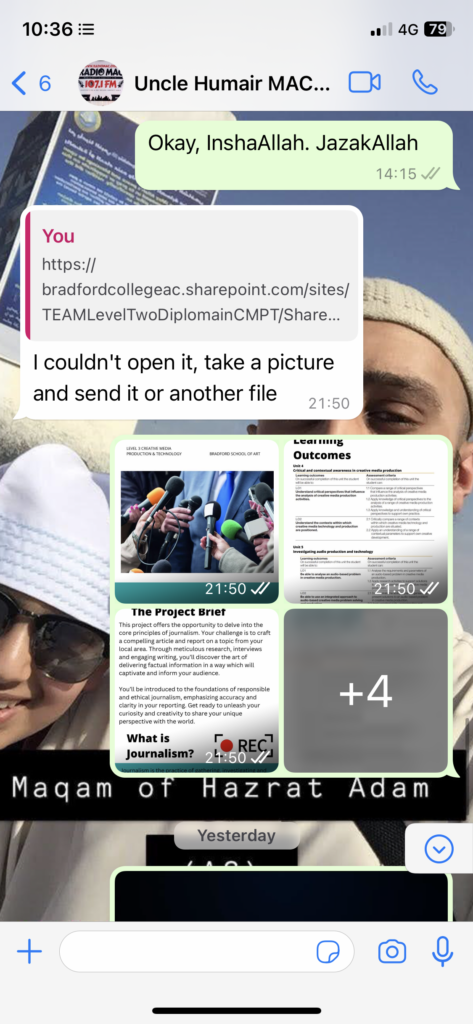
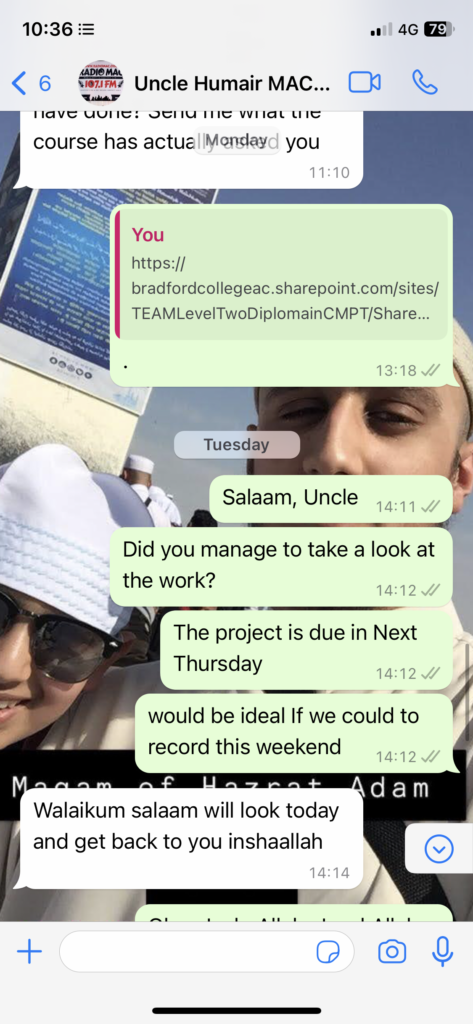
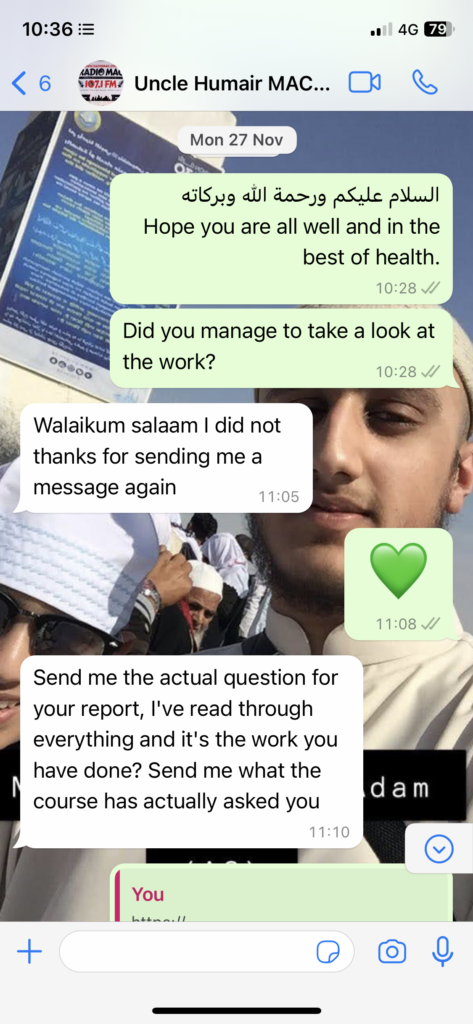
Above images are messages between me and Humair Shahid. Director of Media Arts & Culture Ltd or RadioMAC.
Questions
Salaaam, how are you
Im just going to ask you a few questions today
So could you briefly introduce yourself and what you do
What type of Nasheeds and naats do people prefer and listen more to
So just going of on what you said
Why do people in your opinion prefer songs over Naats, like you said a lot of youngsters do prefer Naats but their are still those youngsters that listen to songs a lot that sometimes maybe even prefer songs over Naats and it’s not just the youngesters either it’s the elders aswell.
In your opinion what would it take for the youth and the elder community to stop listening to songs completely and just listen to Naats and nasheeds. What would it take for not only you as a nasheeds artist but the whole Naheed artist community, the whole naat community, such as you, Like you mentioned Mikhael Mala and many other beautiful people in the Nasheed and Naat community that have a huge impact not only on the youth but also on the elder community and also not within Islam either but even outside to bring people towards Islam.
In your opinion what is the most popular Naat or Nasheed Genre currently? What type of Nasheed do people prefer as in Qawwali, Arabic, English, Urdu. What are people in this day and age mostly attracted to? What do they listen more to? or What do they like?
How does listening to Naats & Nasheeds reflect on your religious belief or anyones religious belief?
Such beautiful answers, just coming on to our last questions now. What kind of feeling, when your listening to naats & nasheed or as a nasheed artist aswell, when your reciting your nasheeds or listening to nasheeds what kind of feeling does that invoke on you?
And lastly what is one thing you would say to the youth of today, or not even the youth the elder community, maybe someone who is looking to revert back to Islam, what is one piece of advice you would give to motivate them and maybe keep them on track and in the right direction.
JazakAllah Brother Meher, that was amazing, thankyou for your time, we know your on a strict schedule. It was really great to have you with us today and join TranquilBroadcastNetwork in this short interview. thankyou very much for your time InshaAllah until nextime. Salaam
